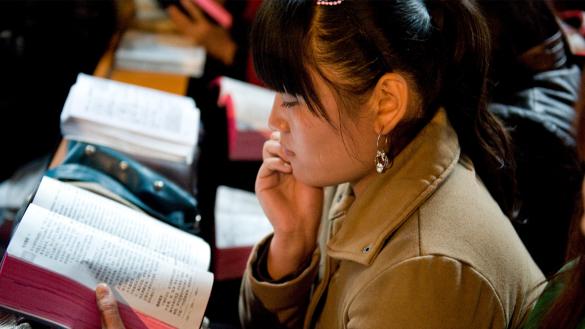Author: Girma Mohammed, 10 December 2020
Ethiopia is a land of rich culture and complex history, with 88 ethnic groups and as many languages, not to mention religious plurality.
The challenge of accommodating plurality has always been a fundamental cause for its tempestuous political history. Once again, it is attracting global attention for the wrong reasons: war, destruction and displacement. The political difference between the current and former ruling elites has culminated in a bloody war. Regardless of who claims victory, there is always one loser: ordinary citizens with no political ambitions at all.
A rare means of solace for them is turning to songs of lament or constructing poems to deal with a sense of loss, injustice and disorientation.
Singing is an important way of being in Ethiopia – it is an irreducible part of the cultural fabric. One does not need to come from a learned class of artists to do these. It is an integral part of indigenous innovations. People sing, or construct poems, when they celebrate a victory. They sing when they lose a battle. They sing when performing arduous daily tasks, e.g. ploughing in gloomy weather, to generate faith and hope. One of the songs that has remained stuck in my mind from my childhood is known as ayzo gebere – ‘be courageous, farmer’. They understand planting is a risky venture in a climate that is increasingly erratic. Flood, drought and locust are their worst enemies, so hope and courage are needed. They also sing when they’re engaged in more hopeful duties such as harvesting. Ululations, singing and dancing take place when a child is born. They sing during weddings – which last for months in some cultures – in preparing couples for the next stage of life.
They also sing when they mourn the death of their loved ones. These songs are often rich with psychological, social and spiritual meanings. During the course of this conflict, there was one famous poem reverberating again, capitalising on the complexity of the current war:
The killer is your husband
The victim is your brother
Your sorrow has gone out of hand
Your despair is homebound
Songs of lament, for them, are a way of offloading daily stress as well as paving the way for reconciliation with God and themselves. This reminds me of Limo Hadumo, a woman I have known very well. She was someone who got married at a very young age. Even though the marriage was arranged by the two families, she had apparently grown to love her husband. However, he died early, leaving her and her three kids behind. Life then became an uphill battle. Tradition forced her to marry her brother-in-law. To make things worse, he already had two wives. The logic of such a tradition is that children should be taken care of by someone who has a blood relationship to them. However, she had no feelings for her new husband. She found her attachment to her first husband unbreakable, which led her to ask her second husband not to visit her. She used her Christian faith as a justification not to enter into a polygamous marriage.
In the Ethiopian rural concept of time, the day ends at sunset. After taking care of kids and cattle, the family would gather around the fireplace. Then the singing starts. Approaching her home around 8 pm, one would almost certainly hear Limo singing. Sometimes the melody of her song gives a hint of the content even before one hears the actual words. Her mood dictates the genre. Sometimes you would find her upbeat – counting her achievements in her life – celebrating her independence. Another time it's lament – directly confronting God. Her faith in God is fervent; but, at times, her conversation with him can be edgy. Once she said to God, ‘It’s regrettable that there is only one of you out there. Had I two of you, I would have insulted you and run to the other for protection.’ She has serious questions about injustices in life, but her monotheism is still intact.
In Ethiopian religious culture, God is understood as holy, compassionate and just. However, there are moments where that tradition fails to hold. People ask the question ‘Why?’ in desperate moments. A famous Ethiopian writer, Beketu Seyoum, writes about another powerful picture of lament in nineteenth-century Ethiopia. There was a civil war going on. Christians were praying for a divine intervention. Regardless, the destruction of war did not even spare the much-revered St Mary’s church. Usually church buildings dedicated to angels and saints are named just ‘Gabriel’, or ‘Mary’, as if they’re the saints or angels themselves, to accentuate the level of reverence. The lament, then, was directed at Jesus – the Son of Mary. Unnamed women sang:
‘While you were watching at our suffering from heaven with disdain
Your mother has now burned down, it’s your time to mourn.’
This lament is very unorthodox in that it accuses Jesus of being indifferent to, or even scornful of human suffering. However, there are sublime sides to it. Firstly, it captures the deep interconnectedness between God and humans. In other words, it shows, in an ironic manner, that God can’t be impervious to human suffering because he is also prone to suffering. Secondly, more importantly, it portrays God not as someone who demands an unconditional ‘Amen’ from his people, but as someone who welcomes confrontation. The relationship between him and his people is genuine because it has its ups and downs.
Share this:

China special part 1 of 3: Being thankful and trusting in God during Covid
This is the first in a three-part series of stories on difficulties facing the Church in China during 2020, the year of the pandemic.

Thank you for standing with Bible mission teams hit hard by the pandemic this Giving Tuesday
You have made a real difference to Bible Societies which would otherwise be in danger of closure, enabling them to keep reaching people with Scripture

Stories of Jesus: How to understand parables
Some of the best-known stories of Jesus are the ones he tells himself – the stories or parables. They stick in our minds, as good stories do.